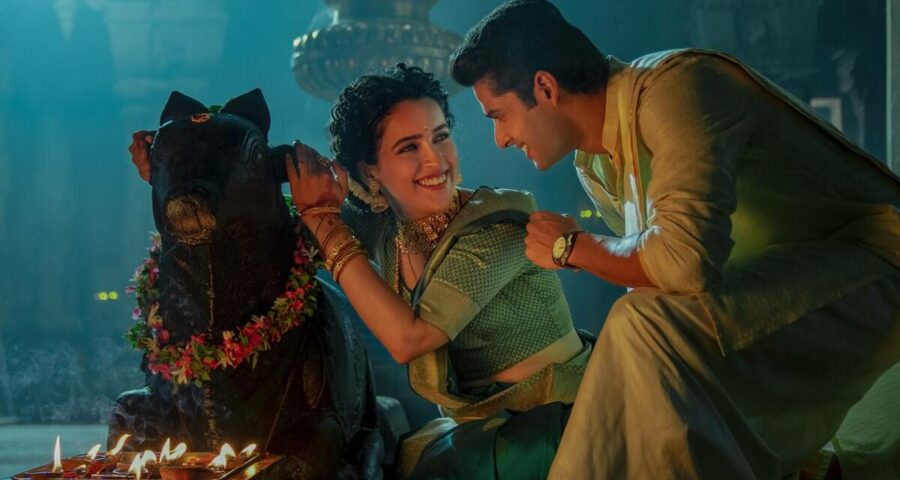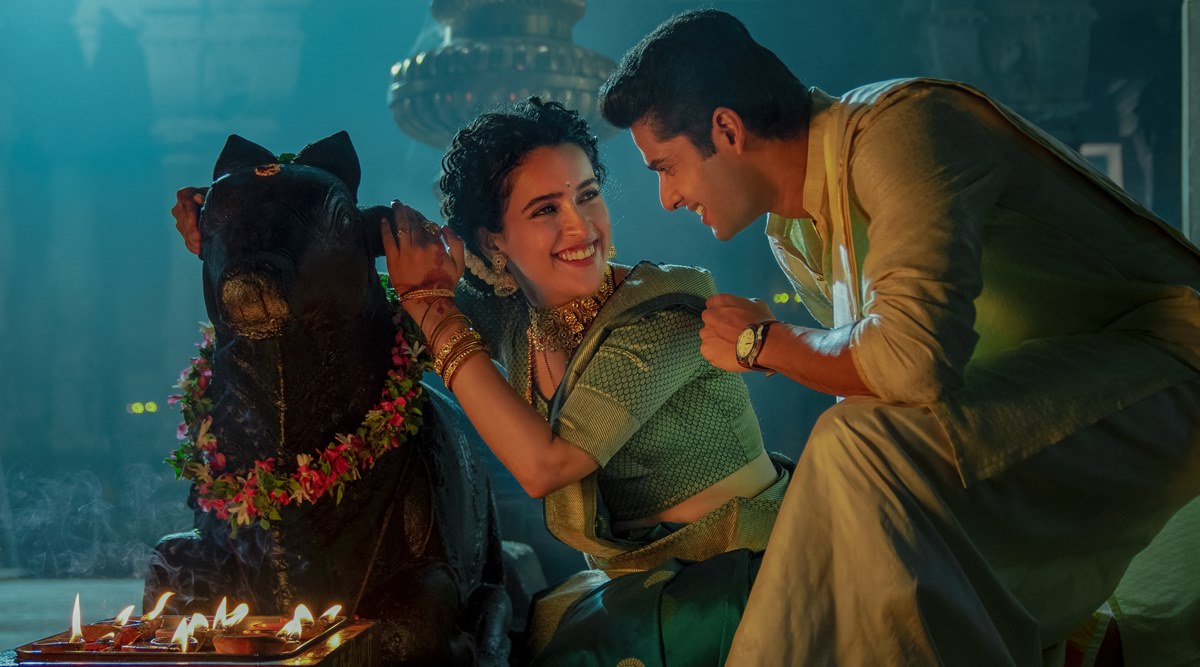Meenakshi Sundareshwar movie review: The Abhimanyu Dassani-Sanya Malhotra doesn’t satirize or send up the whole arranged marriage thing. It is what it is, and it is the lived reality of millions of young Indians.
Meenakshi Sundareshwar movie cast: Abhimanyu Dassani, Sanya Malhotra
Meenakshi Sundareshwar movie director: Vivek Soni
Meenakshi Sundareshwar movie rating: 2.5 stars
A ‘first meeting of the boy and girl’ for the purposes of an arranged marriage, is one of the first boxes family-oriented Bollywood ticks off. And on that score, ‘Meenakshi Sundareshwar’, a mouthful of a movie name, does quite well. Meenakshi (Sanya Malhotra) is not faux demure; she doesn’t bat her eyelashes, is straight up in conversation, and is a huge Rajinikanth fan; Sundareshwar (Abhimanyu) is a committed coder, an engineer who thinks in dots and dashes, and is clueless about books and movies. They make him go to sleep, he declares.
Oh oh, you think, the sleepy metaphor doesn’t augur well for a film which is determinedly languid, and looks all set to wind itself slowly, gently around its unassuming lead pair, the girl, thank heavens, not ‘bubbly’ but just bright, the guy, somewhat stolid, somewhat unexciting, but reassuringly real for all of it.
The way it begins is promising, picking up on local flavours of Madurai where it’s mostly set – the famous temple upon which the name of the film is predicated, the brisk idli-dosai-dispensers called ‘messes’ (the film is smart enough not to say ‘dosa’), the single screen theatres where crazy hordes of Rajini fans bathe his cut-outs in milk and dance while the movie is on — only embellishing the colour and shine at each stop. It is a Dharma production after all, looking nice is in its DNA. The courtyard of Sundareshwar’s home, lit up with a hundred flickering diyas, is lambent; the bachelor pad that he and his colleagues hang out in, in Bengaluru, tips just that side of classy, not slovenly: not an underwear (the Tamil word for it is there for those who will hear it, and smile) or an empty beer bottle in sight.
What I also liked was that the film is not interested in either satirizing or sending up the whole arranged marriage thing. It is what it is, and it is the lived reality of millions of young Indians who live in their parental homes with their wives and children, squabbling and harmonising as they go along. The lovely song “Tittar Bittar”, shot with a sense of fun, captures some of that life — lived around in-laws, bratty kids, and their myriad moods, really well. Meenakshi’s minor pushback against a domineering aunt-in-law is also nice even if dramatized: young brides who live in joint families know how hard it is to acknowledge that they may have had a romantic life before they came by their legal mangalsutras.
But where the film falters is not giving us a believable conflict which becomes the sticking point between the couple forced into living apart, in two cities, having to be content with video calling or texting. For such a ‘traditional’ pair, a sudden sequence which involves handcuffs and other saucy accoutrements that go with it, seems forced even if momentarily funny. Had they not heard of sexting? It is a tonal switch, and it feels contrived and bunged in, like a few other plot points.
The trouble with playing an uninteresting character is that you can come off uninteresting. Abhimanyu is not given enough of an edge to rise above his standard-issue South Indian male about to jump into matrimony and money-that-he-will-earn-from-a-job. Malhotra fares better, even though she seems permanently dressed as if she’s off to a wedding. The thing between them is sweet but sporadic. More focus on what makes the pair tick, would have made this film a charmer from beginning to end.
Source: Read Full Article





